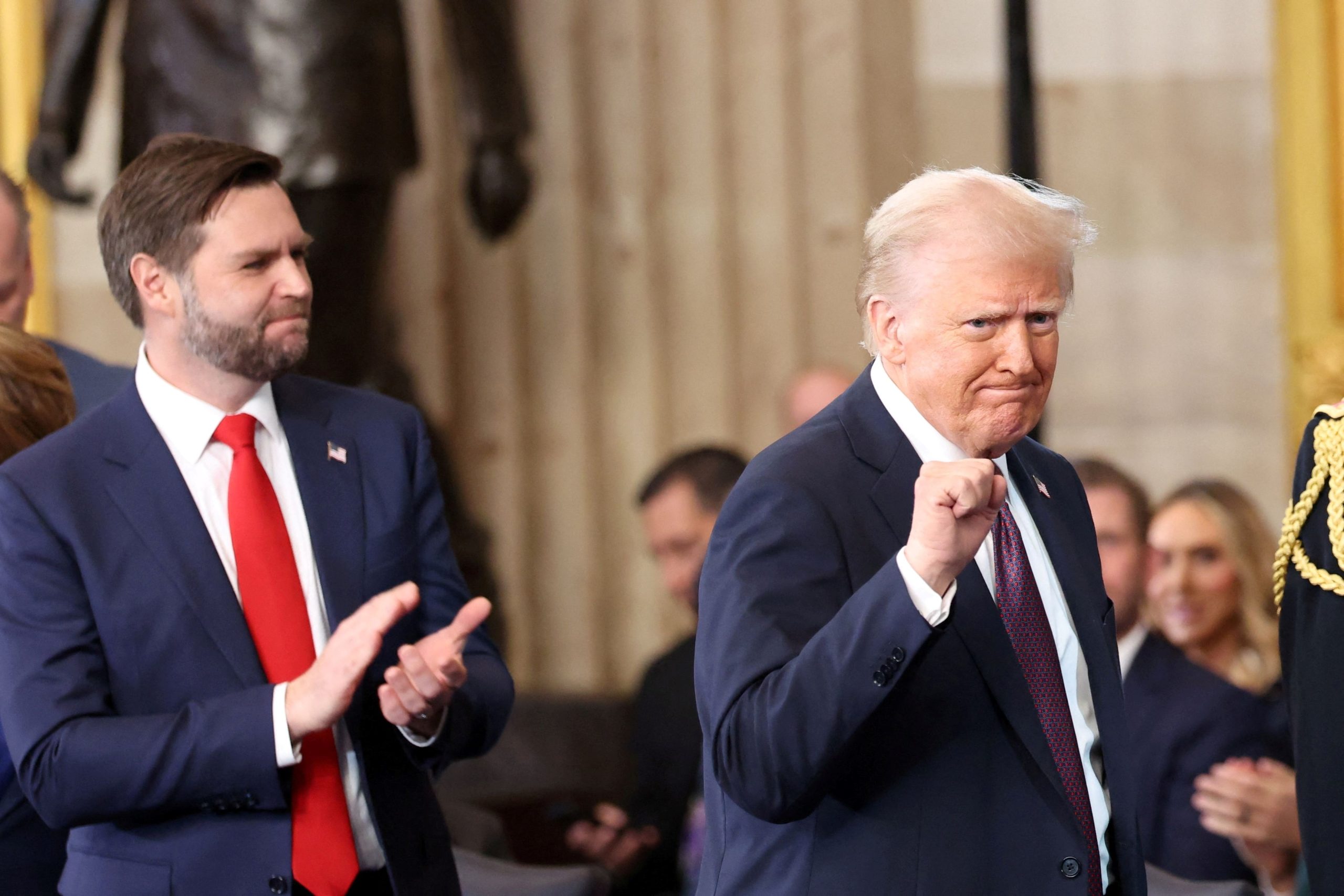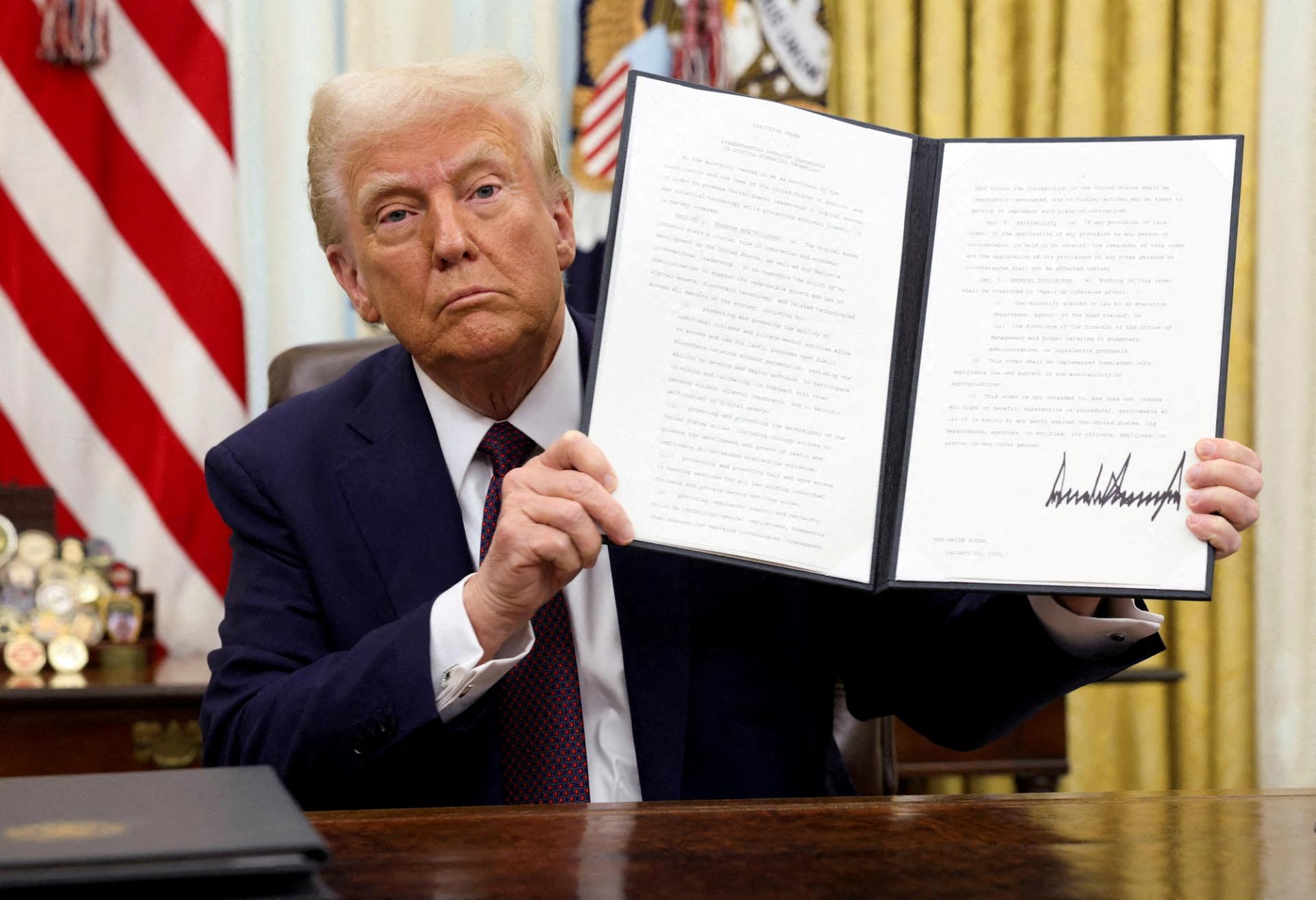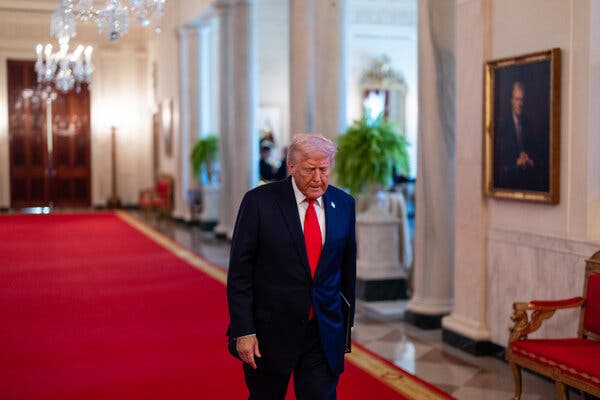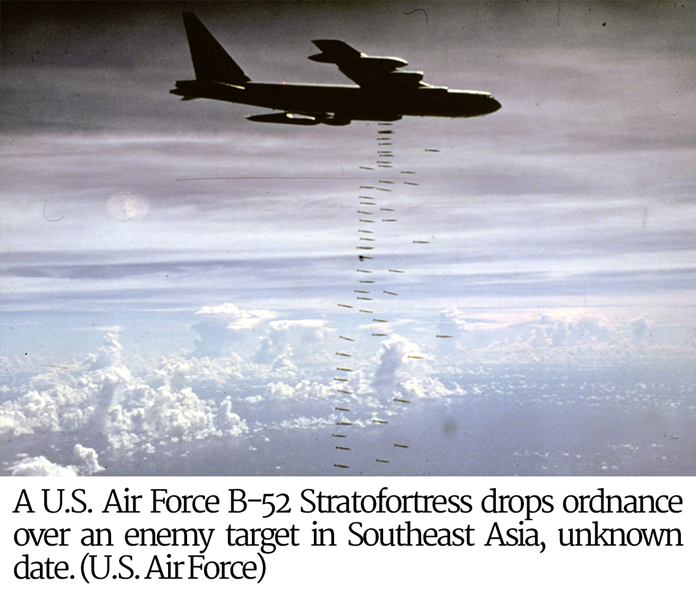In Ho Chi Minh City, the atmosphere among Vietnamese exporters is one of confusion and anxiety. The recent announcement of reciprocal tariffs by U.S. President Donald Trump has left many businesses on edge, particularly those reliant on the U.S. market for their exports. Kieu Quoc Thanh, CEO of SVC Group, a cashew export company, describes the past two weeks as “crazy” for his industry.
Tariff Confusion and Business Impact

The predicament began on April 2 when Trump declared a 90-day pause on Vietnam’s significant 46 percent tariff—aligned with duties imposed on other countries. This announcement introduced a baseline 10 percent levy on imports from all nations, significantly impacting Vietnam, which relies heavily on exports to the United States.
Thanh shares that his shipping container filled with cashews is currently in limbo as uncertainty looms over how much tax his products will incur. “No one knows what’s happening,” he stated during an interview with Al Jazeera last week. This sentiment of confusion is widespread among exporters who are checking online hourly for updates regarding the evolving tariff situation.
Economic Stakes for Vietnam

Vietnam’s economy, heavily dependent on international trade, faces significant risks with these developments. The U.S. remains the country’s largest export market, accounting for a staggering 30 percent of Vietnam’s Gross Domestic Product (GDP) last year alone. As discussions between Hanoi and Washington commenced on April 10 to negotiate a new trade deal, the stakes could not be higher.
Tyler Manh Dung Nguyen, chief market strategist at Ho Chi Minh City Securities Corporation, emphasized the current period of extreme uncertainty for both financial markets and businesses. “It’s like a reality show,” Nguyen remarked, noting that conditions change daily.
A Historic Context of Relations

Trump’s recent tariffs starkly contrast the decades-long efforts to improve relations between the U.S. and Vietnam, which were formally upgraded to a “Comprehensive Strategic Partnership” in 2023. For Eddie Thai, a Vietnamese American venture capitalist, the strain in bilateral ties leading up to the upcoming 50th anniversary of the Vietnam War on April 30 is disheartening. Thai expressed disappointment in Trump’s handling of relations, indicating that it threatens the goodwill built since the 1990s.
China’s Role in the Trade Dynamics
As negotiations progress between the U.S. and Vietnam, China’s influence looms large. During a five-day Southeast Asia tour, Chinese President Xi Jinping visited Hanoi, aiming to position China as a more dependable trading partner than the U.S. Following his arrival, Xi was met with formalities including a 21-gun salute, signaling the importance of the visit.
Trump responded to Xi’s warm reception by suggesting that the two countries might use their talks to strategize against the U.S. Xi, during his visit, urged Vietnam to resist “unilateral bullying” while reaffirming that “China’s mega market is always open to Vietnam.” Reports indicate that Xi and Vietnamese officials signed 45 agreements during this visit, although details remain scarce.
Nguyen, the market strategist, described Vietnam’s diplomatic stance as one of neutrality amid escalating tensions between the U.S. and China. “Hanoi always tries to be neutral in every situation,” he remarked.
The Trade Deficit Dilemma
The ramifications of Trump’s tariffs extend beyond just immediate confusion; they have sparked concern among foreign businesses operating in Vietnam. Bruno Jaspaert, general director of DEEP C Industrial Zones, remarked on Vietnam’s inability to address its trade deficit with the U.S., which hit $123.5 billion in 2024—the third-highest globally. He criticized the Trump administration’s calculations used to set tariff rates as unrealistic.
Facing potential economic repercussions, Hanoi is working diligently to maintain favorable relations with the Trump administration. Government actions include pledging to purchase more Boeing aircraft and liquefied natural gas, as well as initiating discussions about acquiring C-130 cargo planes from Lockheed Martin. Additionally, Vietnam has allowed Elon Musk’s Starlink internet service to operate within its borders on a trial basis.
Shortly before the U.S. presidential election, Trump’s holding company also agreed to invest $1.5 billion in a golf course and hotel project in Hung Yen province, where Communist Party chief To Lam hails from.
Diplomatic Efforts by Hanoi
Vietnamese officials, recognizing the critical need to appease the U.S., have made numerous overtures to the Trump administration. To Lam was among the first foreign leaders to reach out to Trump following his tariff announcement, sending a delegation to Washington to discuss the implications of the tariffs.
In an effort to ease tensions, To Lam expressed willingness to reduce tariffs on U.S. goods to zero. Nguyen Khac Giang, a visiting fellow at Singapore’s ISEAS-Yusof Ishak Institute, underscored the necessity for Vietnam to foster a peaceful relationship with the U.S. to ensure ongoing access to the lucrative American market.
Short-Term Actions Amidst Uncertainty
Despite the looming threats posed by the tariffs, some observers see potential opportunities for Vietnam. Businesses are ramping up production to export goods to the U.S. while the 10 percent tariff is still manageable. Jaspaert noted that many companies plan to ship larger quantities, capitalizing on current conditions.
However, uncertainty remains pervasive, with the possibility that tariffs could increase again if Trump follows through on his threats. “If Trump wants to stand up to his promise, the tariffs will go up again … I don’t believe we’re out of the woods yet,” he cautioned.
Long-Term Implications and Opportunities
In the broader context of the U.S.-China trade war, Vietnam may find itself benefiting from the increased volatility between the two powers. During Trump’s first term, Vietnam experienced an influx of factories relocating from China as companies sought to mitigate exposure to geopolitical risks.
Craig Martin, chairman of Dynam Capital, emphasized that the ongoing trade war represents a real battle between the U.S. and China, creating opportunities for Vietnam to attract businesses looking for stable alternatives. “You could actually see a silver lining, being people looking to do more in Vietnam,” he noted.
Regulatory Challenges Ahead
Despite these potential benefits, Vietnam faces scrutiny from the U.S. regarding its practices of transshipping goods from China under misleading labels. This issue has prompted suggestions for stricter regulations to ensure authentic manufacturing practices within Vietnam.
Nguyen anticipates that both governments will need to agree on mechanisms to prevent “transshipment” of Chinese goods labeled as Vietnamese, positing that such measures could ultimately benefit Vietnam’s manufacturing sector in the long run.
Recent reports have indicated that Hanoi is willing to combat the practice of Chinese goods being misrepresented as made in Vietnam to circumvent tariffs. This commitment reflects Vietnam’s intent to address U.S. concerns while also maintaining its trade relationships with China.
Diversifying Trade Relationships
Furthermore, some analysts view the current geopolitical climate as an opportunity for Vietnam to broaden its trade partnerships beyond just the U.S. Jaspaert suggests that with tensions rising, Europe could seize the moment to enhance trade ties with Vietnam, encouraging diversification.
“Vietnam has won all the wars it’s been in, so I believe it will also win the tariff war,” he concluded confidently.
In summary, as Vietnam navigates the complexities of international trade amid fluctuating U.S. tariffs and evolving relationships with global powers, the nation’s ability to adapt and seize emerging opportunities will be crucial in shaping its economic future.


